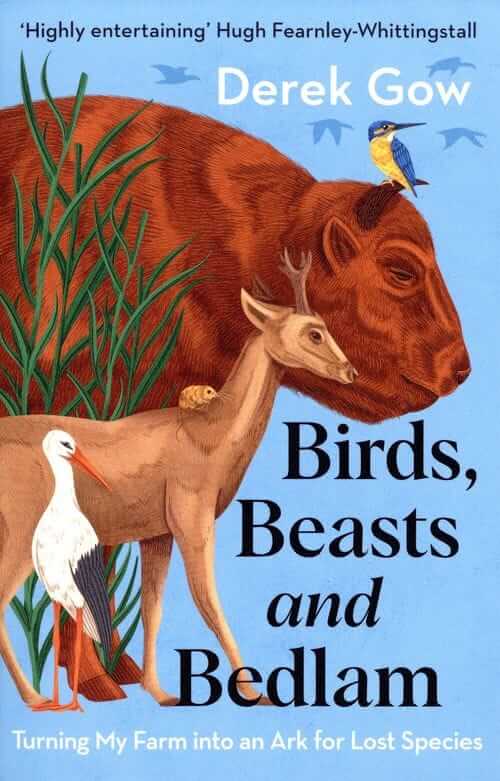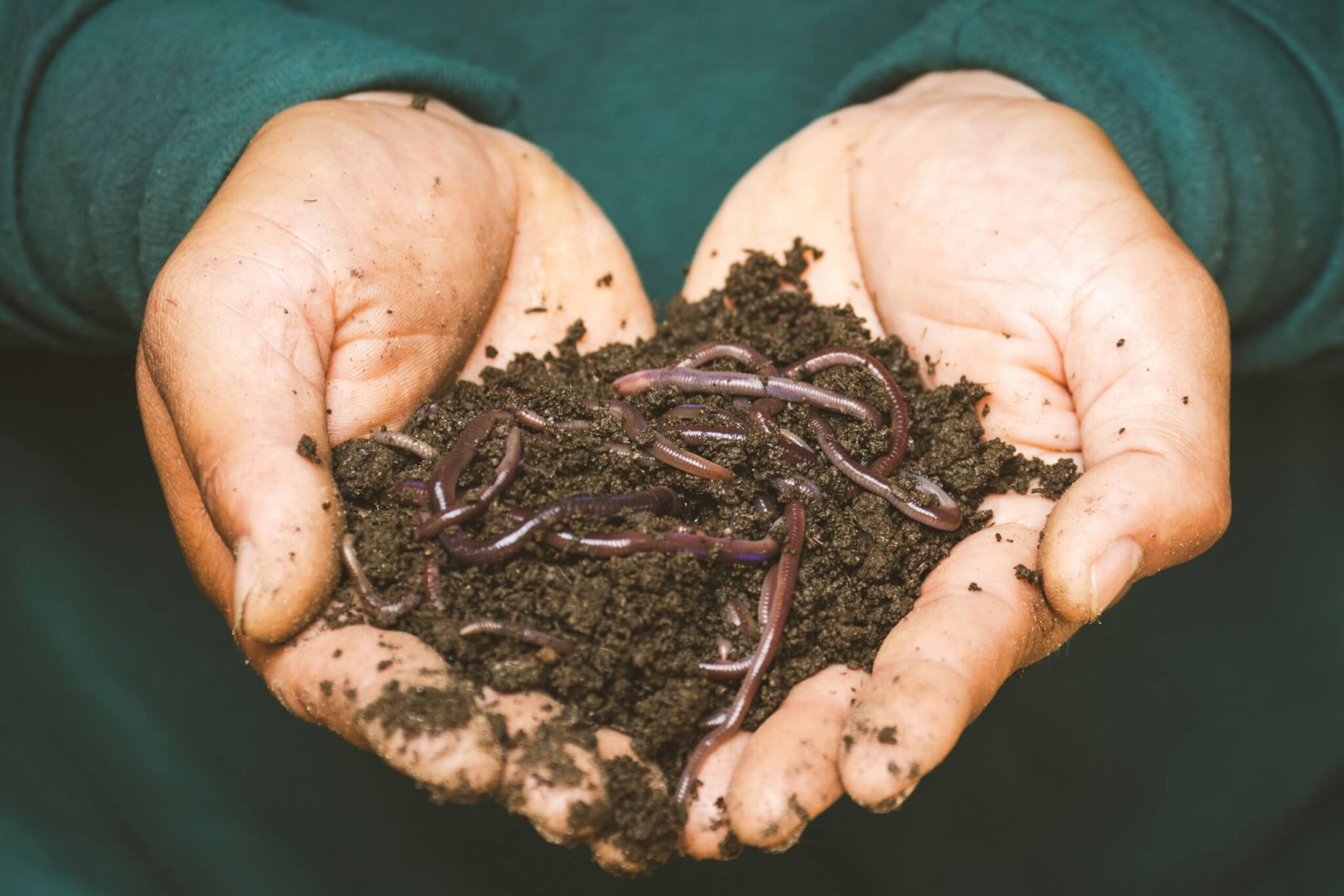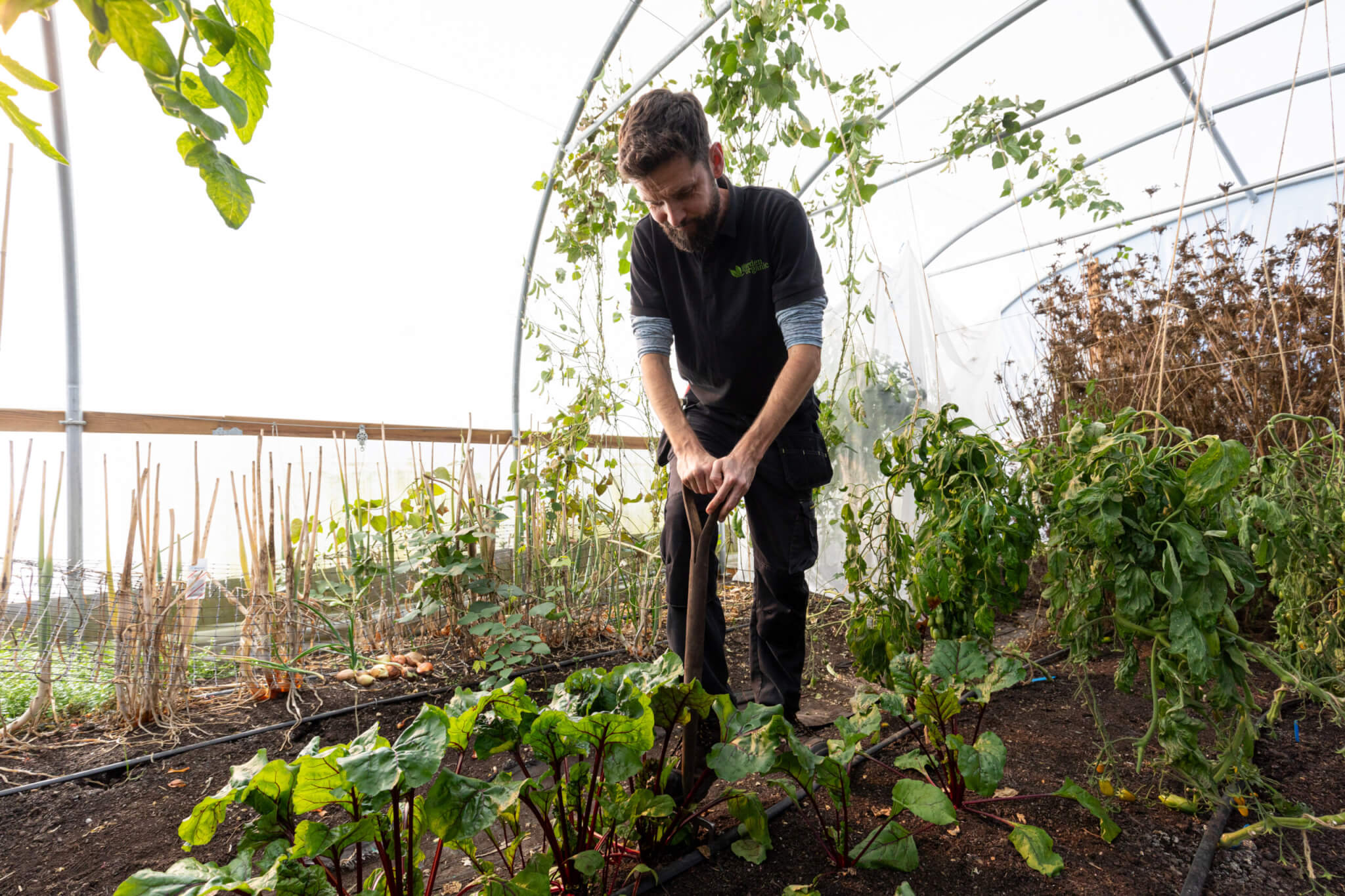Forthright farmer and nature conservationist, Derek Gow brings endangered species back from the brink, sharing stories from his 300-acre rewilded farm and species recovery centre, Coombeshead in this funny, entertaining, outspoken book.
Inspired by Gerald Durrell’s hilarious memoir, Birds, Beasts, and Relatives, the title is a nod to the British naturalist — one of the author’s childhood heroes. Like Durrell, Gow regales the reader with tales from a life surrounded by animals that will at turns shock, sadden, and make you smile.
We trace Gow’s love of wildlife back to his boyhood when a farmer gives him a Shetland ewe as a birthday present, which led to him shepherding his own flock of “oddities” and old breeds, such as Hebrideans, Borerays, and Ronaldseys.
Taking us from the hustle and bustle of sheep markets, agricultural shows, and livestock auctions to his work in zoos, wildlife parks, and nature centres, he shares his adventures and escapades of home-rearing squirrels, wild boar piglets, fox cubs, and hares — and even being bitten by a wildcat.
We end up in Coombeshead Farm in Broadwoodwidger, Devon — Gow’s independent wildlife centre and the titular “ark for lost species.” Here, he restores decimated habitats — helped by water buffalo, Exmoor ponies, and pigs who naturally rewild the land and rebalance the ecosystem — and breeds endangered animals to reintroduce into the wild.
In his “ark” are creatures that were once common sights, including beavers — whose numbers have plummeted but are excellent wetland-builders and ecosystem-revivers, white storks which have been hunted to oblivion, and water voles made homeless through habitat loss.
In his uncensored, salty style, Gow takes aim not at struggling farmers but “the great false idol of the industrial machine”, where government subsidies have spurred on the use of fertilisers, pesticides, and the ripping-up of wildflower meadows, with its knock-on effects on the entire ecosystem and the flora and fauna that once lived there.
Gow criticizes the can-kicking, slow-moving nature of change, burdened by red tape and bureaucracy. He urges, too, our government and organisations not to spend more cash on measuring the damage done, but rather to invest time and money into nature and wildlife recovery efforts.
“It’s always individuals, single people, who change things,” writes Gow — and Gow is a powerhouse of an individual. He does not just bemoan the loss of biodiversity but acts, inspiring the reader to focus less on problems but instead on solutions.
Gow’s methods may be part of the solution, and he has bred thousands of animals such as water voles for release projects, suggesting “captive breeding… affords the only hope that remains.”
Whilst Gow pulls no punches in this book, hope is nevertheless at the heart of it, and he remains optimistic for the future, even at a time when countless plants and animals teeter on the brink of extinction.
Wildlife lovers, farmers, conservationists, and anyone interested in regenerative agriculture, rewilding, and landscape-scale nature recovery should read this book for a reminder that our actions matter — and the time to act is now.
Birds, Beasts and Bedlam: Turning My Farm into an Ark for Lost Species by Derek Gow (Chelsea Green Publishing, 2022). Reviewed by R. B. L. Robinson.









